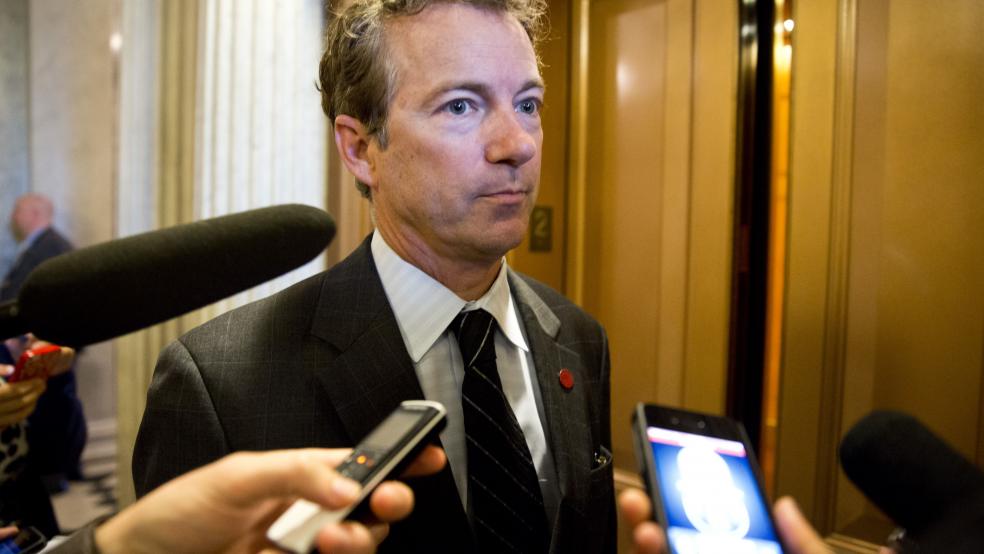Sen. Rand Paul (R-Ky.) took the top spot for the third year in a row at Saturday’s Conservative Political Action Conference straw poll, edging out Gov. Scott Walker (R-Wis.) as the favorite in the last CPAC presidential preference contest before primary voting begins.
Paul had been the prohibitive favorite heading into this year’s balloting, which featured 17 candidates.
More than 3,000 attendees voted, a 20 percent increase over 2014's turnout.
Related: Rand Paul Talks Up National Defense, Sidesteps ISIS
Hundreds of Paul fans had streamed in from across the country for the multi-day event in National Harbor, Md. -- but his percentage of the vote actually dropped, to 25.7 percent, from 31 percent in 2014. Former Florida governor Jeb Bush (R) had made a major effort, sponsoring buses that brought supporters in from Washington, D.C. to Maryland and paying entry fees for some supporters – a push that brought him a fifth-place showing.
A candidate’s popularity with the Conservative Political Action Conference hasn’t necessarily been a great predictor of his or her success with the larger GOP electorate, as attendees tend to have a stronger libertarian bent than the Republican majority. The Kentucky senator had won the CPAC straw poll in 2013 and 2014, and his father former Texas congressman Ron Paul won in 2010 and 2011. Mitt Romney won in 2012.
But that isn’t really the point of CPAC anyway.
Related: Walker Continues to Take on Labor as His GOP Stock Soars
The event — which is sponsored by think tanks, conservative Web sites and influential interest groups like the National Rifle Association — is really more about theater, a forum for budding presidential candidates to road-test ideas. And in that regard, this year’s gathering did not disappoint.
Some of the excitement had to do with the fact that organizers changed the format of the event from previous years. Rather than just deliver speeches, candidates were expected to take questions from the audience — a twist that helped some candidates, but hurt others.
Walker, who tops many polls, made headlines for appearing to draw a parallel between his fight in 2011 against public sector unions and the challenge the United States faces in combating the Islamic State, the militant group that has taken responsibility for beheadings, burnings and other savagery. Commentators shook their heads at the implicit comparison between Wisconsin citizens exercising their right to free speech by protesting with terrorists. A spokeswoman for the governor later clarified that he “was in no way comparing any American citizen to ISIS.” She continued, “What the governor was saying was when faced with adversity he chose strength and leadership.”
Former Florida Gov. Jeb Bush, who has a wide support base in the Republican establishment but who is disliked by some conservatives because of stance on immigration and Common Core education standards, stepped on to the stage to boos from the audience but managed to put what many observers called a solid performance by touting his conservative record on things like affirmative action and taxes.
The next major primary-focused event slated to draw of this year's top Republican presidential contenders: next weekend's Iowa Agriculture Summit in Des Moines.
This article originally appeared in The Washington Post.
Read more at The Washington Post:
The Religious States of America, in 22 Maps
At Least 6 GOP States Revisit Their Stance on Obamacare
Justice Dept. Ramps Up Security of Groups





